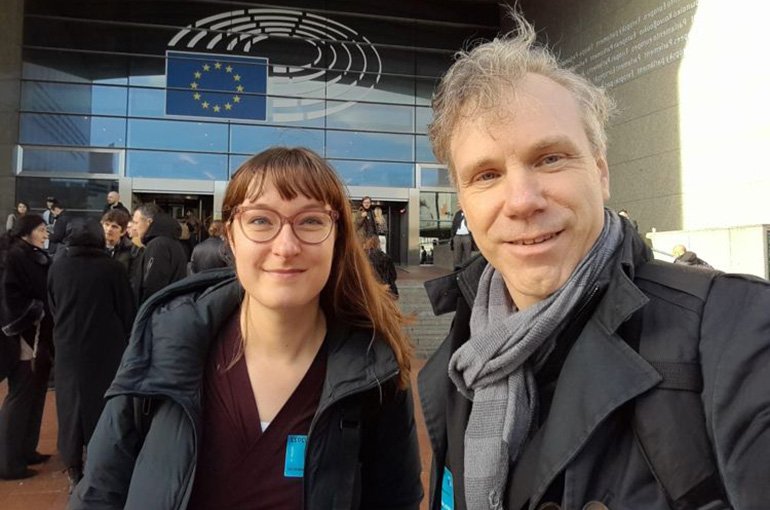Utrecht Data School was invited to the European Parliament to talk about FRAIA

Last week, Mirko Tobias Schäfer and Iris Muis of the Utrecht Data School were invited to the European Parliament to talk about the Fundamental Rights & Algorithms Impact Assessment (FRAIA). Together with Arthur Vankan and Janneke Gerards, Schäfer and Muis developed the FRAIA as a tool, a kind of manual, that supports organisations in decision-making around the development and implementation of algorithms.
Schäfer and Muis were invited by Kim van Sparrentak (GroenLinks) to speak, also on behalf of their co-authors, at The Greens/EFA’s Fundamental Rights in the AI Act event.
The future AI Act
Currently, the European Parliament and the European Council are negotiating the final version of the Artificial Intelligence Act, an EU law that will impose requirements on (the use of) AI systems. This AI Act will likely feature a ‘fundamental rights impact assessment’. For inspiration for such an assessment, Schäfer and Muis spoke about what FRAIA is and how it can be used.
Other speakers at the event included State Secretary for Kingdom Relations and Digitalisation Alexandra van Huffelen and Czech Deputy Prime Minister Ivan Bartoš.
Fundamental Rights & Algorithms Impact Assessment
In the future, algorithms can support governments and companies in carrying out their legal obligations. Inaccuracy, ineffectiveness or, worse, a violation of human rights, such as the ‘toeslagenaffaire’, must then be prevented. To this end, Schäfer, Vankan, Muis and Gerards developed FRAIA at the request of the Ministry of the Interior and Kingdom Relations.

